Year published :August 2023
Pages :400 pp.
Size :15 x 23 cm.
Color illustrations :20 images (color & bw.)
Maps :2 maps, 5 tables
ISBN: 97861621519899786162151965
Empire Looks South, The: Chinese perceptions of Cambodia before and during the Kingdom of Angkor
by Peter HarrisBy Peter Harris
Preface by David Chandler
ISBN 978-616-215-196-5 (Hardback)
ISBN 978-616-215-198-9 (Paperback)
The most famous first-hand account of the Kingdom of Angkor was left to us by the imperial Chinese envoy Zhou Daguan. But Zhou’s was not the only portrait of Angkor and the kingdoms that came before it. The Empire Looks South draws on other early Chinese sources to provide new and engrossing perspectives on early Cambodia up to and including the time of Angkor.
These sources include accounts in official Chinese histories, descriptions by Buddhist monks, the reflections of Daoists searching for immortality, and reports by Chinese merchants in pursuit of perfumes and other exotic goods.
Many of the accounts are of the first kingdom of Cambodia, Funan, centred on the lower Mekong. Long regarded as a major centre of regional trade, the book makes clear that Funan was also a major source of Buddhist learning. The Empire Looks South provides portraits of Funan’s first queen and kings, its people, its prosperous land, its boats shaped like fish, and its arduous trials by ordeal.
After Funan’s mysterious demise in the seventh century, it was succeeded by the state or states of Zhenla, the Chinese name for Cambodia until the time of Zhou Daguan. The Empire Looks South describes the royal government and customs of Zhenla, while taking account of Cambodia’s likely fragmentation during the early centuries of Zhenla into several polities. From the ninth until the eleventh century the Chinese record falls silent, just as the Kingdom of Angkor was taking shape. Various reasons for this ‘freeze’ are considered, among them the nature of Angkor as an inland agricultural society. The book concludes with accounts of Angkor in its final centuries, including an updated translation of Zhou Daguan’s record, and Ming dynasty descriptions of Angkor during its decline.
The book tells its story through readable translations of important texts, some of them done in English for the first time, and all of them set in historical context. The work concludes with several informative appendices, among them a portrait of Linyi, the pre-Vietnamese kingdom that was early Cambodia’s neighbour, again drawn from Chinese sources.
About the Author
Peter Harris is a Senior Fellow at the New Zealand Contemporary China Research Centre, Victoria University of Wellington, New Zealand, where he was the founding Director of Asian studies. Previously he was a Representative of the Ford Foundation in China and an international consultant on civil society. He has published widely on Chinese politics, culture, and history. His latest book is a new translation of Sun Tzu’s Art of War, published by Everyman’s Library and Vintage Classics. His other publications include a complete new translation for Everyman’s Library of the classical anthology Three Hundred Tang Poems.
What Others Are Saying
“This absorbing, clear-eyed book will be indispensable to scholars of Cambodian history and to readers interested in Chinese relations with the region long before it was “discovered” by the West.”
—David Chandler, Professor Emeritus, Monash University
“Drawing on an impressive array of sources across eleven centuries, Peter Harris’ compelling new book sheds rare light on Chinese perceptions of and interactions with early Southeast Asia. From elephant diplomacy to Buddhist historiography, The Empire Looks South challenges assumptions about the Indianization of the region and offers an alternative lens on Funan, Zhenla, and Angkor. Essential and revelatory reading.”
—Penny Edwards, Professor, University of California, Berkley
“This is a very well-argued study that takes on several puzzles centered on the origins of the polity known as Funan. It examines the sources of its power and influence and its relations with Zhenla, the mysterious entity that succeeded it eventually to become the great Angkor kingdom. The series of conclusions offered here constitute the best understanding of an extraordinary story.”
—Wang Gungwu, University Professor, National University of Singapore

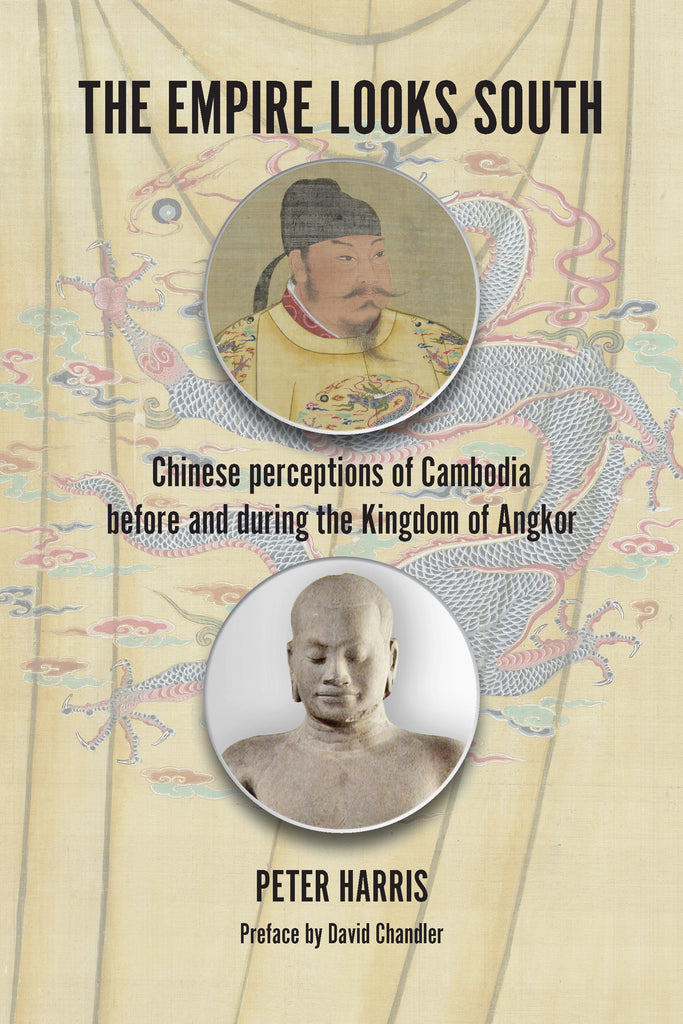







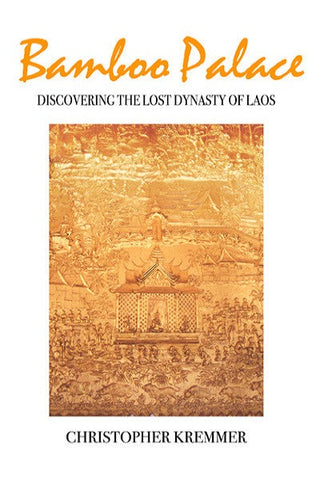
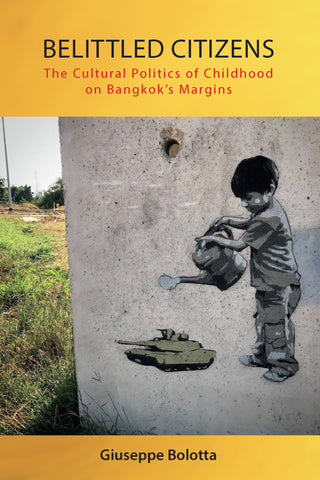

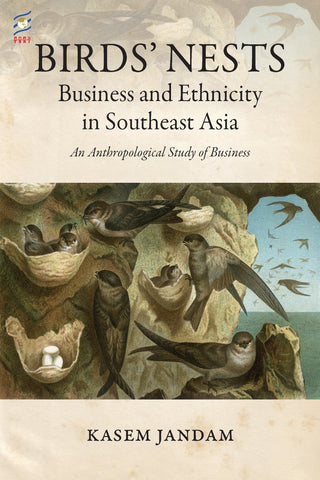
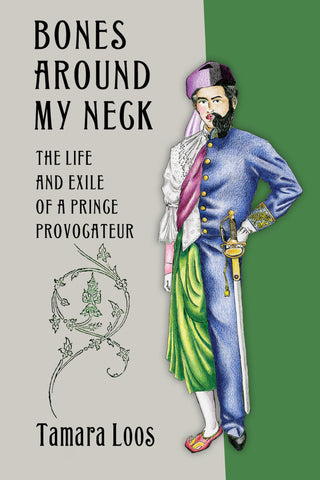
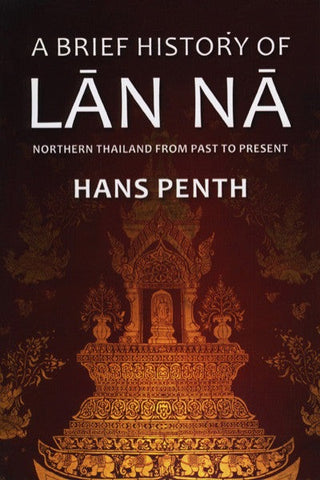
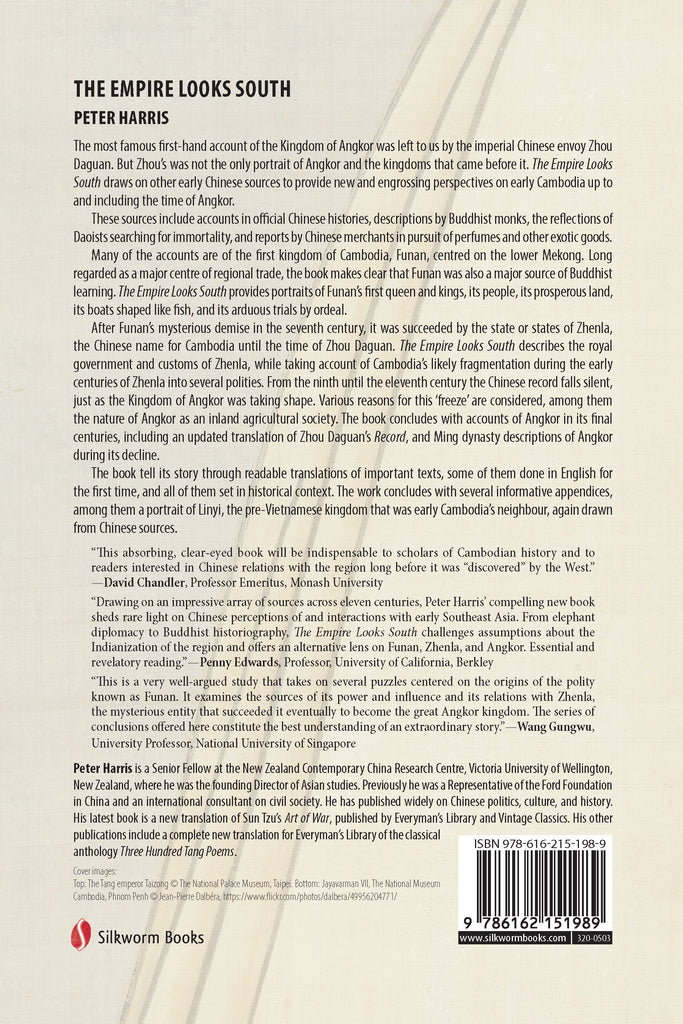
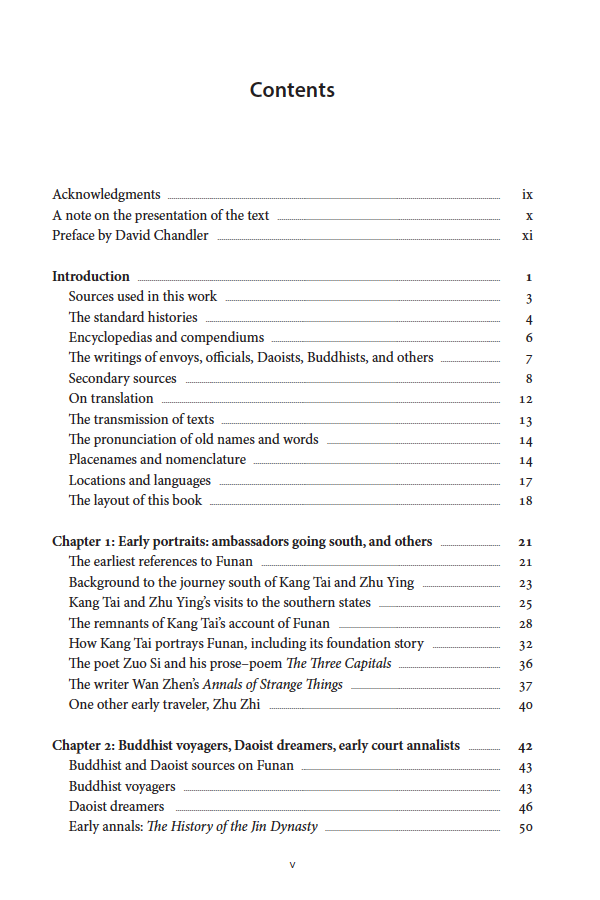
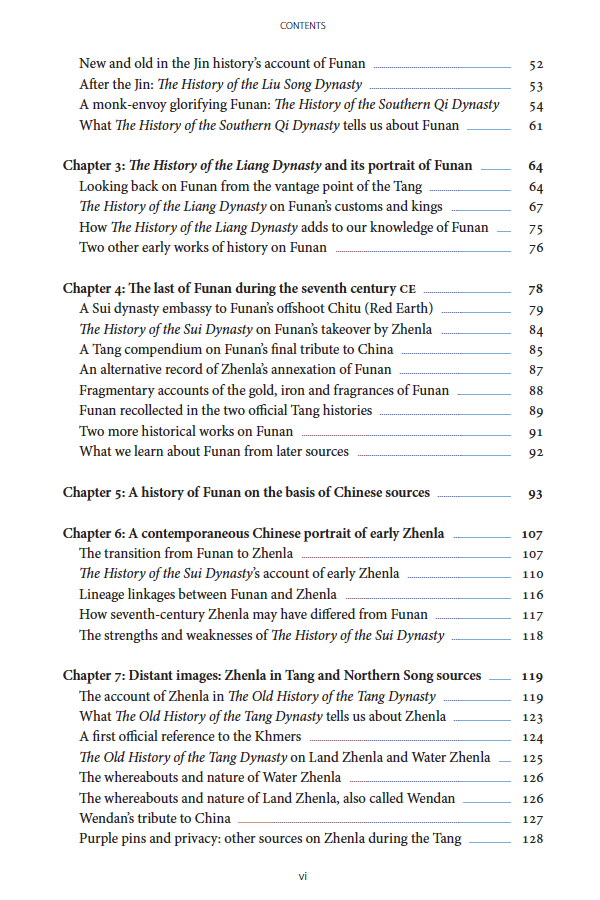
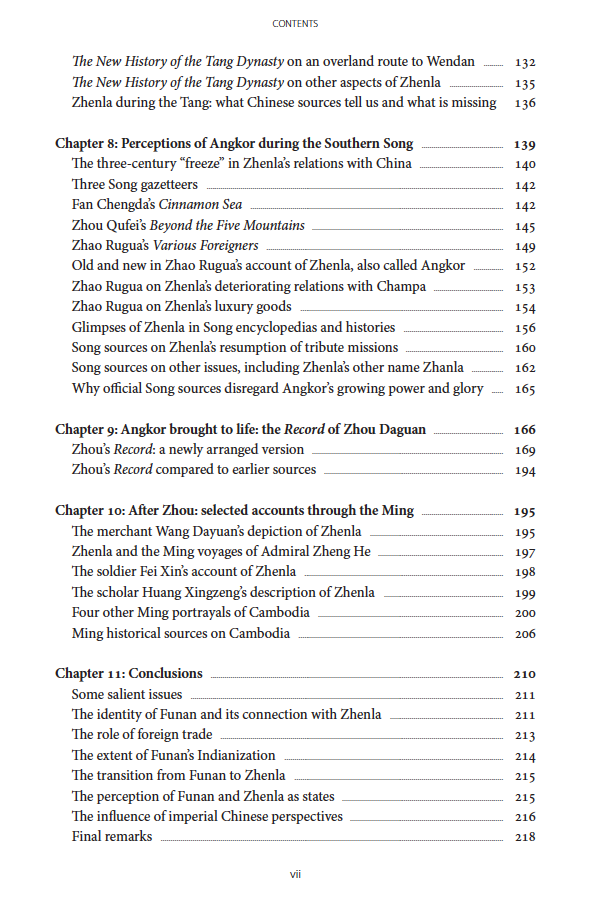
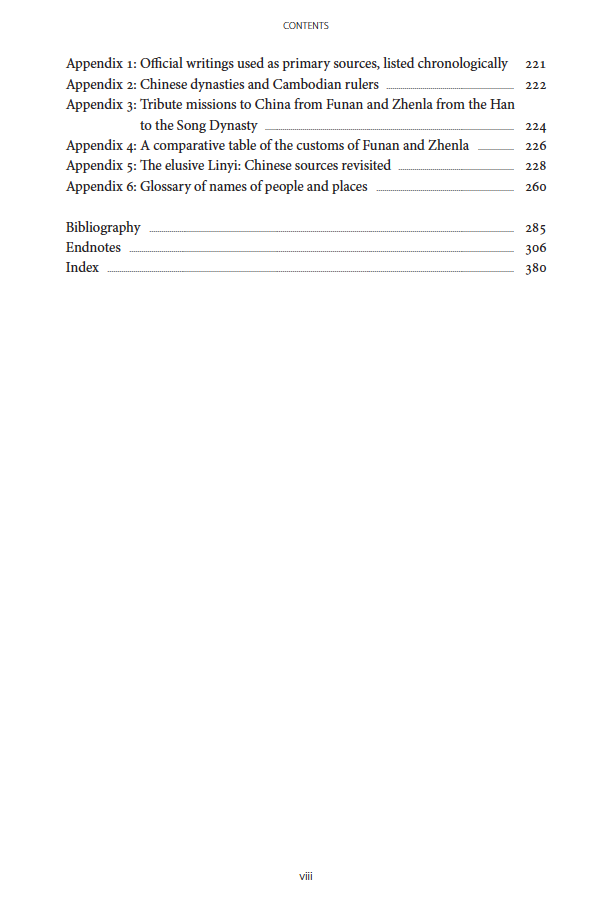
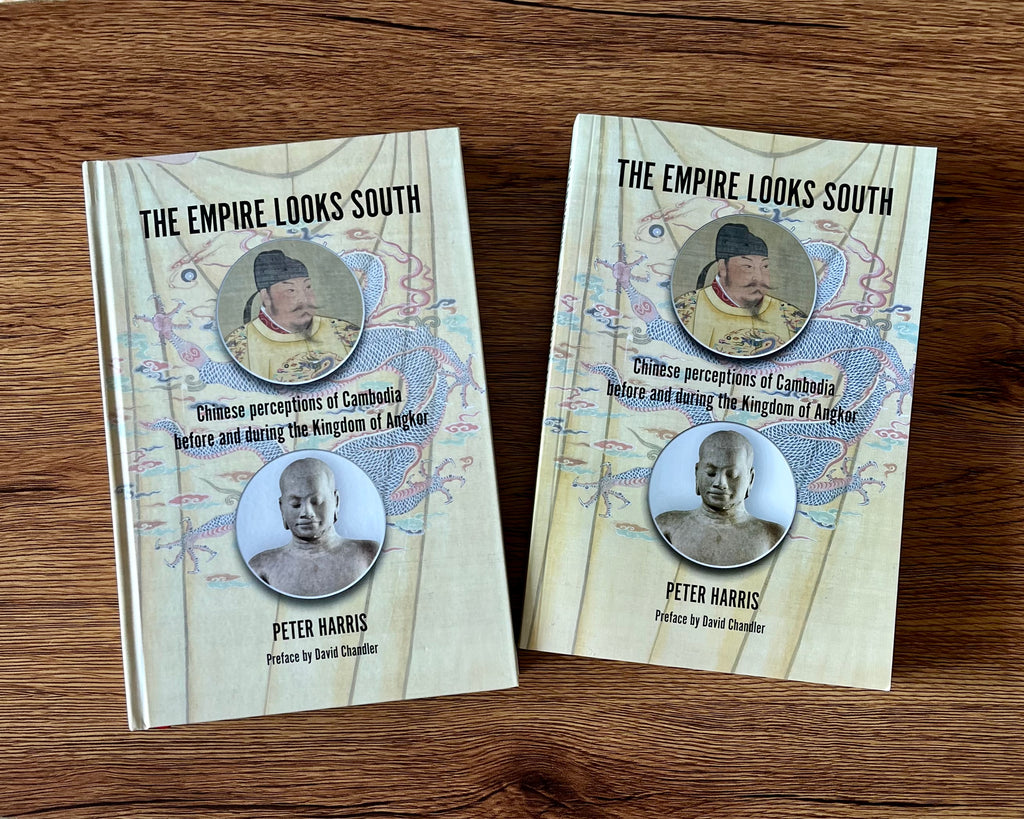
Share this item: